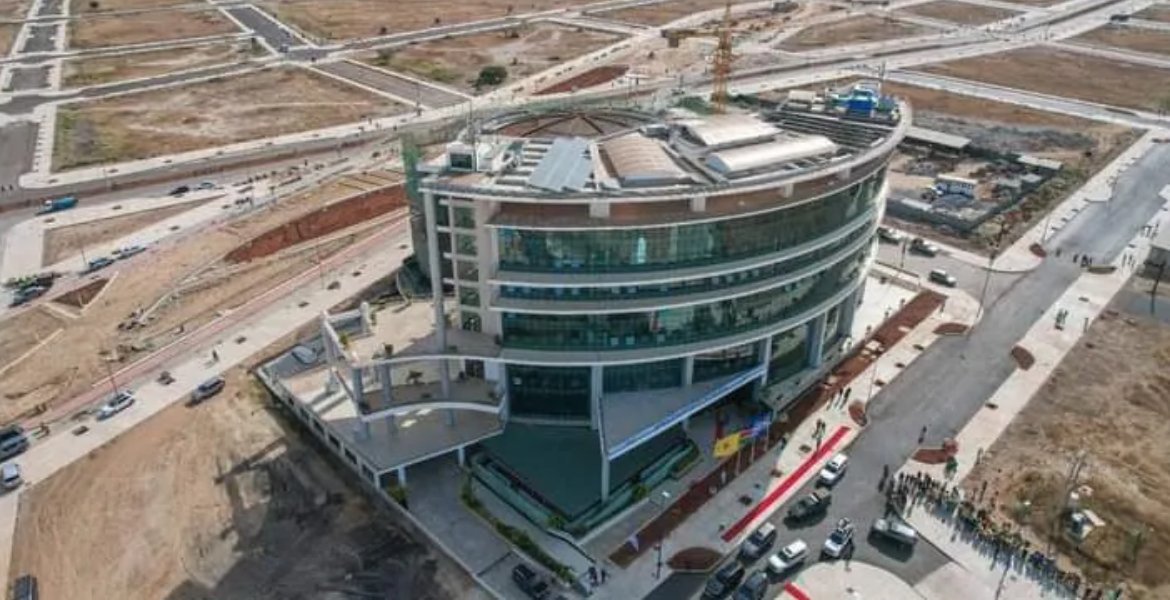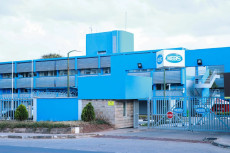- Konza Technopolis, or Konza City, founded by former President Mwai Kibaki, is a reflection of Kenyans' ambitiouns to answer to the global demand for smart cities. Located approximately 60 kilometres from Nairobi, Konza City is designed to be the largest smart city in Africa, setting a benchmark for digital innovation and sustainable urban development across the continent.
- Konza's smart technology aims to improve public services through automation and digital solutions. Smart lighting systems automatically adjust brightness based on real-time conditions, reducing energy consumption. Similarly, waste bins equipped with sensors will notify waste management services when they need emptying, keeping the city clean and efficient. Such features minimize resource waste, cut costs, and make public services more effective, setting a model for smart cities around the world.
Konza Technopolis, or Konza City, founded by former President Mwai Kibaki, is a reflection of Kenyans' ambitions to answer to the global demand for smart cities. Located approximately 60 kilometres from Nairobi, Konza City is designed to be the largest smart city in Africa, setting a benchmark for digital innovation and sustainable urban development across the continent.
Konza City was begun as a long-term vision of the government dubbed Vision 2030 initiative, which aims to make Kenya a middle-income country and a regional leader in digital technology. Konza is envisioned not just as a city but as a symbol of the technological and economic transformation of Africa.
Konza City's infrastructure is designed to play a crucial role in making life easier by creating employment opportunities in the digital space. Internet connectivity also comes in handy as 5G connectivity is to be made available in the country to enhance high-speed internet that will help Kenyans work online, enhance connectivity and help to manoeuvre complex applications.
Additionally, the city will be interconnected with the help of Internet of Things (IOT) decives that will monitor everything from water levels in reservoirs to traffic patterns on roads. Real-time data collected through IOT sensors will enable in decision making and optimize resources, enhancing efficiency in urban services.
Konza's smart technology aims to improve public services through automation and digital solutions. Smart lighting systems automatically adjust brightness based on real-time conditions, reducing energy consumption. Similarly, waste bins equipped with sensors will notify waste management services when they need emptying, keeping the city clean and efficient. Such features minimize resource waste, cut costs, and make public services more effective, setting a model for smart cities around the world.
Read More
Additionally, Konza's transportation infrastructure will be underpinned by technology. It envisions a future of autonomous vehicles, reducing the need for private car ownership and promoting a cleaner, safer environment. Self-driving electric buses and shuttles are planned to operate within the city, reducing congestion and pollution while ensuring convenient access to city destinations.
Sustainability is central to Konza's design, with renewable energy sources and green infrastructure built into the city's plan. The primary energy source for Konza will be solar power, along with wind and other renewable resources. Smart grids will allow for better management and distribution of energy, minimizing losses and ensuring stable power availability.
Buildings will follow eco-friendly designs to conserve water and energy, featuring efficient lighting and climate control systems that adjust automatically to minimize energy use. With a focus on sustainable design, Konza strives to set new standards for eco-friendly urbanization in Africa.
Konza City will be a centre for smart healthcare and education in Kenya and beyond. The Smart healthcare systems in Konza will include telemedicine facilities, AI-assisted diagnostics, and centralized health records, providing seamless and accessible healthcare to residents.
In medical research, disease prevention, and personalized healthcare, AI and machine learning are expected to play a crucial role in making medical services more effective and efficient. In Africa, access to better health care has been a challenge, and such innovations can drastically contribute to access to health services in remote areas across Africa.
In education, Konza plans to feature smart classrooms equipped with digital learning tools, virtual reality (VR), and augmented reality (AR) to enhance the learning experience. Additionally, educational institutions and research facilities will be hosted in Konza City. This will also attract partnerships from other partners, the tech giants, and this will help young people gain skills and develop a culture of innovation. The city is also projected to attract partnerships with tech giants, creating a collaborative environment for global and local talent.
Furthermore, on security, resource management and service delivery, AI is expected to play a crucial role. AI-driven surveillance systems will enhance security by detecting potential threats, and data analytics will help city planners and managers make data-backed decisions, making the city's operations more responsive to real-time needs.
Furthermore digital transactions in the city will be secured ensuring transparency this will be executed by Distributed Ledger Technology this will enhance trust in the city's digital systems. This technology could be applied to manage property records, improve financial security, and streamline government processes, enabling Konza to create an efficient, transparent urban environment.
Konza City is expected to creat job opportunities and trigger enterprenuership this is because it's inovative ecosystem it is ecpected to attract global attention. As Africa's largest smart city, Konza Technopolis will be a catalyst for technological and economic growth across the continent.
By setting a model for smart urbanization, Konza will encourage other African countries to adopt technology-driven solutions in urban planning, thus advancing Africa's position in the global digital economy.












